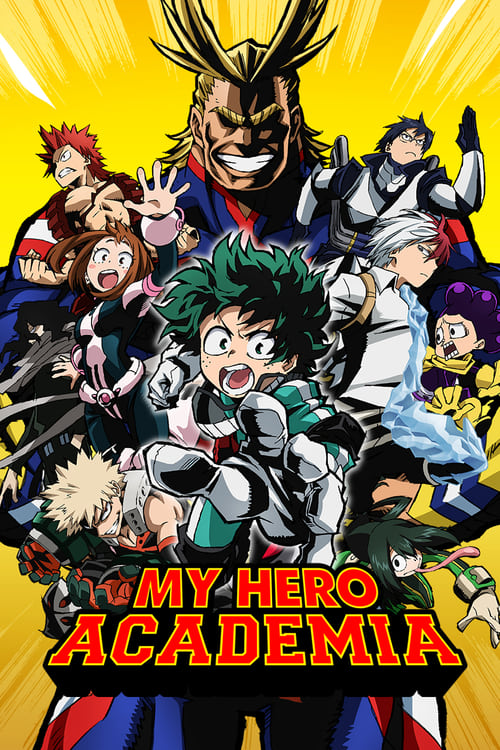
Ask Your Own Question
What is the plot?
The episode begins with Leonard, Sheldon, Howard, and Raj in their apartment, where they are discussing the upcoming Nebraska football game. Leonard is excited about the game, while Sheldon expresses his disdain for sports, claiming they are a waste of time. Howard and Raj, however, are enthusiastic about the game and try to convince Sheldon to join them in watching it. Despite his reluctance, Sheldon is eventually persuaded to attend the game with the group.
As they prepare for the game, Leonard reveals that he has invited Penny to join them. This news excites Leonard, as he hopes to impress her with his knowledge of football. Meanwhile, Sheldon is annoyed by the idea of Penny attending, as he believes her presence will disrupt their viewing experience. Leonard reassures Sheldon that it will be fine, but Sheldon remains skeptical.
The scene shifts to the football game, where the group is seated in the stands. The atmosphere is electric, with fans cheering and the excitement palpable. Leonard tries to explain the rules of football to Penny, who is not very interested. As the game progresses, Leonard becomes increasingly frustrated with Penny's lack of enthusiasm. He tries to engage her in conversation about the game, but she is more focused on socializing and enjoying the atmosphere.
During the game, Sheldon becomes increasingly agitated by the chaos around him. He struggles to understand the appeal of the sport and is overwhelmed by the noise and excitement. In a moment of frustration, he decides to leave the game early, much to the dismay of Leonard and the others. Sheldon's departure highlights his discomfort in social situations and his preference for order and predictability.
Back at the apartment, Sheldon is still upset about the game and the chaos he experienced. He expresses his feelings to Leonard, who tries to reassure him that it was just a fun outing. However, Sheldon remains unconvinced and continues to dwell on the negative aspects of the experience. Leonard, wanting to cheer Sheldon up, suggests they play a board game instead, but Sheldon is not interested.
Meanwhile, Penny is at the apartment, and she and Leonard have a heart-to-heart conversation. Leonard expresses his frustration about not being able to connect with her during the game. Penny, sensing Leonard's disappointment, tries to comfort him and suggests that they should find common ground in their interests. This moment deepens their relationship, as they both realize they need to communicate better.
As the episode progresses, Sheldon decides to take matters into his own hands. He devises a plan to create a "Cornhusker Vortex," a theoretical concept he believes will enhance the experience of watching football. He enlists the help of Howard and Raj, who are intrigued by the idea. Together, they work on the project, which involves creating a device that will supposedly improve their luck during the game.
The climax of the episode occurs when the group tests the Cornhusker Vortex during another football game. They gather in the apartment, excited to see if Sheldon's invention will work. As they activate the device, chaos ensues, and the group finds themselves in a series of comedic mishaps. The device malfunctions, leading to a series of humorous and unexpected outcomes that further highlight Sheldon's struggles with social interactions and his obsession with control.
In the final scenes, the group reflects on the day's events. Leonard and Penny share a moment of connection, while Sheldon comes to terms with the fact that not everything can be controlled or predicted. The episode concludes with the group laughing together, showcasing the bond they share despite their differences.
What is the ending?
In the ending of "The Cornhusker Vortex," Sheldon is initially upset about the Nebraska Cornhuskers losing a football game, which he had been excited about. However, he ultimately finds solace in the fact that he has a new girlfriend, who is supportive of his interests. Meanwhile, Leonard and Penny's relationship takes a step forward as they share a moment of intimacy, and Howard is left feeling rejected after his attempts to impress Bernadette fail.
Now, let's delve into the ending in a more detailed narrative fashion:
As the episode nears its conclusion, the scene shifts to the apartment where Sheldon, Leonard, Howard, and Raj are gathered. The atmosphere is tense, filled with the remnants of the football game they had just watched. Sheldon, who had been fervently rooting for the Nebraska Cornhuskers, is visibly distraught over their loss. His emotional investment in the game is palpable, and he struggles to cope with the disappointment. The camera captures his furrowed brow and clenched fists, emphasizing his frustration.
Leonard, trying to lighten the mood, suggests they focus on the positives. He shares a moment with Penny, who has been supportive throughout the game. Their chemistry is evident as they exchange glances, and Leonard's demeanor softens when he is around her. The warmth of their connection contrasts sharply with Sheldon's turmoil, highlighting the different emotional states of the characters.
Meanwhile, Howard, who had been attempting to impress Bernadette throughout the episode, finds himself feeling dejected. He had hoped to win her over with his charm and humor, but his efforts fall flat. The camera captures his disappointment as he watches Bernadette interact with other friends, leaving him feeling isolated. His internal struggle is evident as he grapples with feelings of inadequacy.
As the episode progresses, Sheldon's mood begins to shift when he receives a text from his new girlfriend, who expresses her understanding of his passion for the game. This moment serves as a turning point for Sheldon. The camera zooms in on his face as a small smile breaks through his earlier frustration. It's a subtle yet significant change, showcasing his ability to find comfort in companionship, even amidst disappointment.
The final moments of the episode bring Leonard and Penny closer together. They share a tender moment, leaning in for a kiss that signifies a deepening of their relationship. The warmth of their connection is underscored by the soft lighting of the apartment, creating an intimate atmosphere. This scene encapsulates the emotional growth of both characters, as they navigate the complexities of their feelings for one another.
As the credits roll, the audience is left with a sense of resolution. Sheldon has found solace in his relationship, Leonard and Penny are moving forward, and Howard, despite his rejection, remains a part of the group dynamic. Each character's fate is intertwined, reflecting the themes of friendship, love, and the ups and downs of personal connections. The episode concludes with a sense of hope, as the characters continue to support one another through their individual struggles.
Is there a post-credit scene?
In "The Cornhusker Vortex," there is no post-credit scene. The episode concludes without any additional content after the credits roll. The focus remains on the main storyline and character interactions throughout the episode, which centers around Sheldon's attempts to understand the complexities of sports fandom, particularly in relation to the Nebraska Cornhuskers football team, and how it affects his relationship with his friends.
What motivates Sheldon to help Penny with her football knowledge?
Sheldon is initially motivated by his desire to help Penny understand the game of football, as he sees it as a way to bond with her and improve her chances of impressing her date, who is a football fan. His logical approach to teaching her the rules of the game reflects his character's need for structure and understanding in social situations.
How does Leonard's relationship with Penny evolve during this episode?
Throughout the episode, Leonard's feelings for Penny are highlighted as he becomes increasingly protective and supportive of her. He is visibly concerned about her lack of knowledge about football, which he believes could affect her date. This concern showcases his deeper emotional investment in their relationship, as he wants to see her succeed and be happy.
What role does Howard play in the football game scene?
Howard plays a significant role in the football game scene as he is one of the friends who participates in the game. His character adds comedic relief with his over-the-top enthusiasm and antics on the field, showcasing his desire to impress both the guys and the women watching. His interactions with the other characters during the game highlight his often misguided confidence.
How does Raj's character contribute to the dynamics of the group during the episode?
Raj contributes to the dynamics of the group by providing a contrasting perspective on football. His initial disinterest in the game and his humorous commentary on the events unfold create a light-hearted atmosphere. His character's reluctance to engage in the sport also emphasizes the varying levels of enthusiasm among the group, showcasing the different personalities and their interactions.
What is the significance of the 'Cornhusker Vortex' in the context of the episode?
The 'Cornhusker Vortex' refers to the phenomenon that Sheldon believes affects the outcome of the football game. It symbolizes his scientific approach to understanding the world around him, even in the context of sports. This concept serves as a comedic element throughout the episode, as it highlights Sheldon's quirky personality and his tendency to overanalyze situations, ultimately leading to humorous outcomes.
Is this family friendly?
"The Cornhusker Vortex" from Season 3 of The Big Bang Theory contains some elements that may be considered objectionable or upsetting for children or sensitive viewers. Here are a few aspects to consider:
-
Mature Themes: The episode includes discussions about relationships and romantic interests that may not be suitable for younger audiences.
-
Humor Style: The humor often involves sarcasm and social awkwardness, which might be confusing or uncomfortable for some viewers, especially children.
-
Physical Comedy: There are scenes involving physical comedy that may be perceived as aggressive or overly competitive, which could be upsetting to sensitive viewers.
-
Social Dynamics: The portrayal of social interactions, including rejection and rivalry, may resonate differently with children or those who are sensitive to themes of exclusion or failure.
Overall, while the show is primarily a comedy, these elements may warrant consideration for family viewing.

















